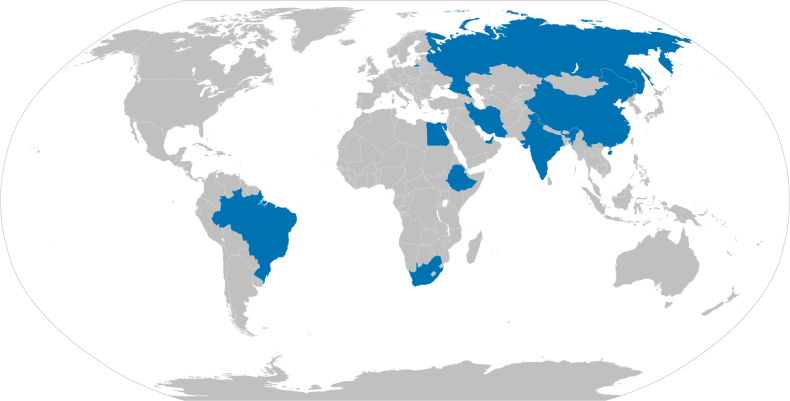Conference on BRICS cooperation enlargement and future prospects

BRICS Cooperation Enlargement Conference
Monday 18 March 2024, 2.00 p.m. – 6.00 p.m.
Historical Library of Public Law, Via Università, 12 – Parma
Department of Law, Political and International Studies University of Parma
On Monday 18 March 2024, the BRICS Parma Research Group and the Eurispes Institute with its Laboratory on BRICS are organising at the University of Parma, a conference entitled “The enlargement of BRICS cooperation: what future prospects?”.
Experts from a wide range of scientific disciplines will take part in the meeting, with the aim of delving into the recent enlargement of the BRICS group.
The initiative is promoted by the Department of Law, Political and International Studies of the University of Parma and Food for Future.
The conference will feature speakers and experts from the Universities of Milan (Università Cattolica and SDA Bocconi), Palermo, Rome (LUISS University) of Salento, and the foreign universities of Sao Paulo (Brazil) and Zhongnan (China). The conference, in Italian, will also be broadcast via streaming.
The event, which will allow for an in-depth assessment of the possible impact of the recent enlargement of the BRICS coordination on the European and Italian system as well, is an important result of the long-standing collaboration between Eurispes’ BRICS Laboratory, coordinated by the Secretary General, Marco Ricceri, and the BRICS Parma Research Group, the BRICS Research Centre coordinated by Prof. Lucia Scaffardi, of the Department of Law, Political and International Studies of the University of Parma.
In addition to the keynote speeches, the work programme includes a series of talks by experts who took part in the selection of specific papers presented on the topic organised by the promoters in February, an initiative that registered considerable and widespread interest in the scientific world.
On the occasion of the 15th BRICS Summit, held in Johannesburg in August 2023, it was announced that six states had been invited to join the bloc consisting of Brazil, Russia, India, China and South Africa. Following the decision of the Argentine President, Javier Milei, not to accept this invitation, Saudi Arabia, Egypt, Ethiopia, Iran and the United Arab Emirates joined the BRICS cooperation on 1 January 2024, marking the start of a new important stage in the BRICS evolutionary process. It is therefore necessary to question and reflect on the consequences of this unprecedented enlargement, which opens up scenarios that have yet to be determined both on the internal front – on the functioning, activities and modes of cooperation between BRICS countries – and on the external front, in the global geopolitical context.



